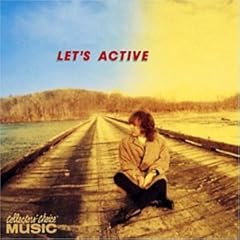Back in the day, dinosaurs walked the earth with humans, made crappy solo albums, and lived in mansions.
It's hard to remember now, more than 35 years past their last great album (and more than 40 years past their prime), that the Rolling Stones once were important -- even if that importance has been eclipsed by Altamont, the death of Brian Jones, Keith's drug arrest and blood transfusions, and Mick's sexual escapades.
Long before the drunken excesses of the Studio 54 period (captured in a rare moment of honesty that resulted in a lesser-hits anthology called Sucking in the 70s), the Stones made gritty, visceral music. They were punks long before the Ramones and the Sex Pistols recast them as the lumbering dinosaurs that needed to be vanquished before rock could rise again.
When they were young and hungry, the Stones were lean and mean. Years of success and sub-par shows made them heavier, slower, and a lot less interesting. Years of living in wild excess in France and pasting records together with individual players in studios on different continents snuffed out the spark in their music. And the need to trot out bigger and more bloated tours every few years just made things worse. When Bill Wyman walked away from the Stones in the early 90s, he said the music had become stale and boring; perhaps it just took him 15 years to notice.
Meanwhile, for more than 20 years, I'd read and heard about a 1981 Bill Wyman single (that became a fluke hit in a bunch of European countries) called "Si, Si, Je Suis Un Rock Star." But I never saw the record and never heard it on the radio. Based on what I'd read (and the fact that Bill Wyman was in the Rolling Fucking Stones and played bass on a handful of the greatest songs in history not to mention being namechecked on a great song by the Smithereens), my expectations were pretty high (although clearly not high enough to actively seek out the record).
So now today I read a column by Paul Resnikoff of the Digital Music News about the Death of the Rock Star, which notes that a fragmented media landscape make it impossible to create any more of the "mega-bands of old, on the order of Guns N' Roses, Kiss, Van Halen, Led Zeppelin, or Black Sabbath." Maybe it's just me, but I assume this post has a typo and mentally substitute "the Rolling Stones" for "Guns N' Roses."
Which got me wondering about Bill Wyman again. So I went and found his song on YouTube and -- literally 10 minutes ago -- listened to it for the first time.
Holy shit.
No one's faulting Bill Wyman for not being a great singer, but you'd think that he at least would have access to better songs, arrangements, and players. At the very least, you'd expect it to be better than any random song you could hear from an amateur band on MySpace. But it's so much worse than that. To call this song bad is an insult to the very idea of badness (and not in a good way). (Link for Gmail subscribers.)
If this is what it means to be a rock star, maybe we're better off without them. Maybe the world doesn't need anymore mediocre songs and crappy videos that brag in bad French accents about scoring with Brazilian models.
So, even if his tongue was firmly in cheek: Yeah, Bill, you're a rock star. Now please shut up.
Slumgullion
7 hours ago
 And every time I passed it, I was struck by a small poster in the corner of the front window for a mid-80s album by
And every time I passed it, I was struck by a small poster in the corner of the front window for a mid-80s album by  They didn't have a television set until she was 12 (and even then they were only allowed to watch Great Performances on PBS).
They didn't have a television set until she was 12 (and even then they were only allowed to watch Great Performances on PBS). The best music usually does. And the music of
The best music usually does. And the music of 





